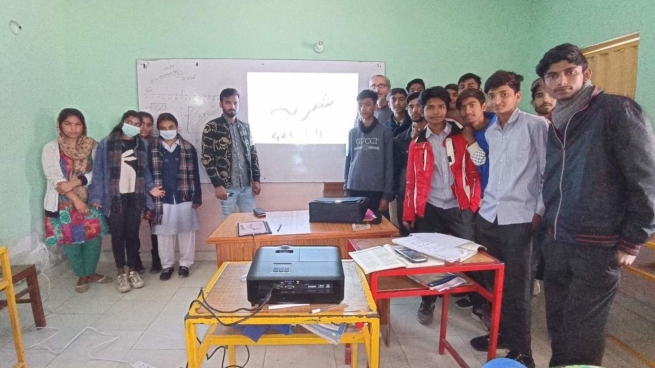PAKISTAN: Students strengthen skills with upgraded lab

PHYSLAB project provides upgrades to equipment for the physics lab at the Salesian School in Lahore
(MissionNewswire) The PHYSLAB project is providing upgrades to equipment for the physics lab at the Salesian School in Lahore, Pakistan. The goals are to strengthen the scientific skills of students and highlight that a Catholic school is able to offer quality education for all students, regardless of religion. The school has been educating Christian and Muslim students since it opened. The project will impact 120 students at the school and 170 students at the Salesian Vocational Training Center, who share the laboratory.
The project is part of a plan to redevelop the educational center and update outdated equipment. The physics laboratory will enable students to discuss and construct concepts, work with objects and instruments, and compare observations and theories. In addition, students will be able to familiarize themselves with the use of different software and experience the role of information technology in the collection and analysis of data.
The laboratory equipment will allow the creation of five working groups, with each having a simple tablet with free applications. Students will work in a group environment, which will help with social skills and learning teamwork. Experiments will highlight materials that students can use at home to replicate what they did in the lab.
The project was supported by the International Institute Eduardo Agnelli in Turin, Italy. Salesian Brother Piero Ramello said, “We are finalizing the purchases for the laboratory, only a few pieces are missing, already ordered, but which were not available in the store. We took some photos with the students. They too are very grateful.”
Salesian schools provide economic benefits, scholarships and accommodations for students from the poorest families so that education is not only accessible but also an incentive for parents to send their children to school. Pakistan has one of the lowest literacy rates in South Asia at less than 50 percent. Although the country’s constitution acknowledges free and compulsory education between the ages of 5-16, the rule is often not followed in rural areas for those over age 13.
According to the World Bank, 31.3 percent of people living in Pakistan fall below the poverty line. Gender plays a role in poverty in the country. Pakistan has traditional gender roles that define a woman’s place in the home and not the workplace. As a result, access to education is challenging for girls and society investments are less. There are few opportunities for women and girls in the country outside of traditional roles. This is evidenced by the disparities in education including the literacy rate.
###
Sources:
ANS Photo (usage permissions and guidelines must be requested from ANS)
ANS – Pakistan – “Physlab”: science lab to improve education and foster integration
World Bank – Pakistan




